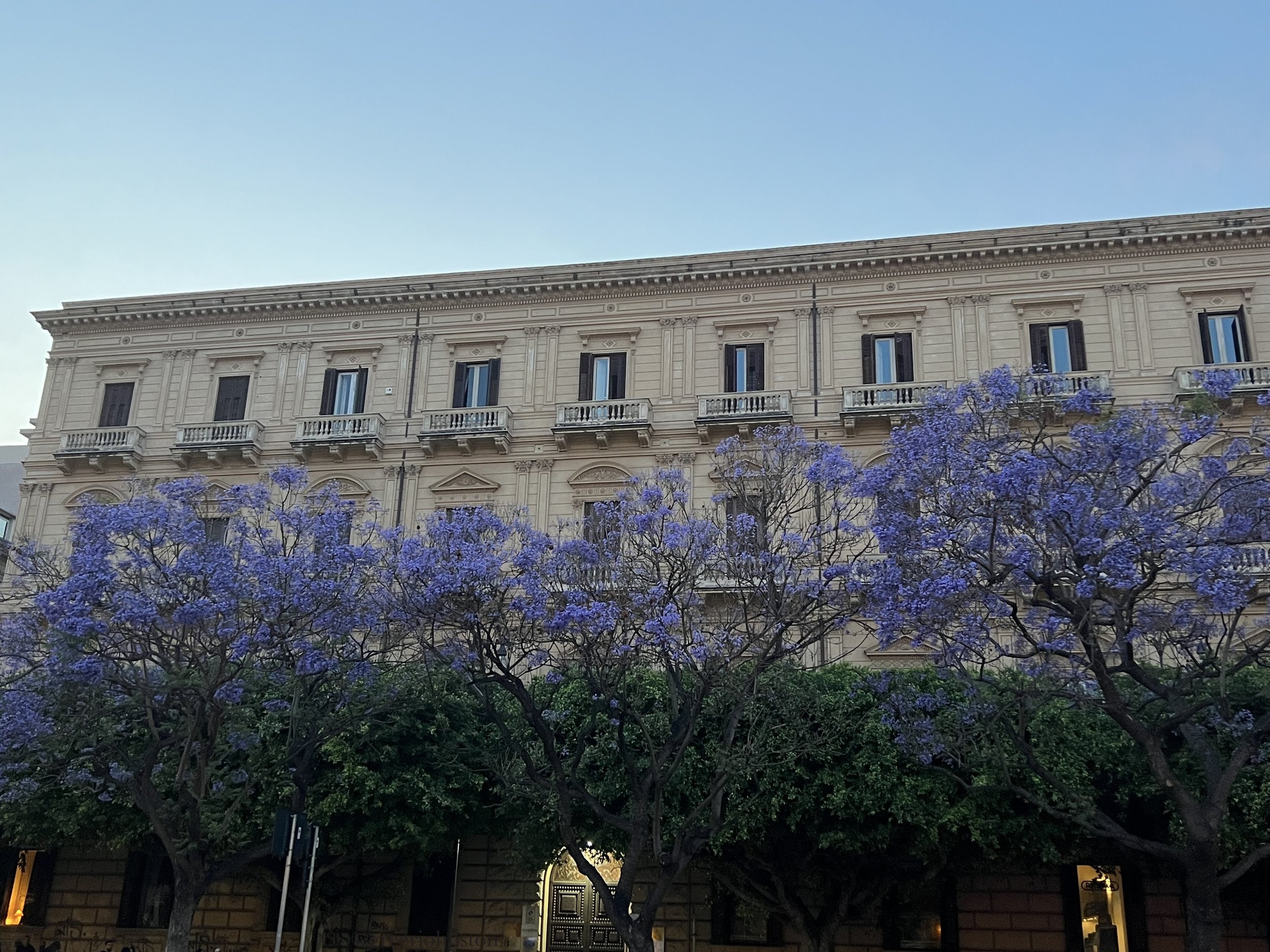Assurances are no guarantee
The annual jaracanda blooms, Palermo, Sicily
This is not the first time I have thought about this. But to think about it, you may have to break past some of your firmly held beliefs. Beliefs like, “As long as I…” Because we should all know by now: what happens is not up to us to decide.
Mostly I would say this is a confrontation I am having with the Western perspective, with Westerners who have mostly stayed in the West and therefore have a deeply held belief about this. We have this idea that as long as we prepare for our future, take out our insurance, that somehow the future is guaranteed to us. That somehow our safety is assured. But nothing is ever guaranteed.
I think it’s because many Westerners don’t have to deal with catastrophe. Our natural disasters are micro-managed. People’s homes are destroyed in a hurricane? Those can afford to will rebuild their homes on top of the one that was ruined, though they must subconsciously know that this house will be destined to the same fate, sooner or later. Those who can’t afford to rebuild, those who even took out insurance but whose payments never came, they feel the doom already. They already have no where to go. They are living what those who rebuild their house don’t yet know: the storm has not passed, it has only gone on to another part of the world. But a time will come when it will come back.
So Westerners like to rely on their insurance policies, that they believe have the weight of God. But recently I have witnessed that this is not so. We never know what is coming tomorrow. Your insurance policy will not stop you from getting sick, your promotion will not stop you from being laid off. Your shiny new engagement ring will not stop you from getting divorced, your perfect family photo will not stop you from losing someone you love. So stop taking those things: your health, your loved ones, your livelihood, and your home for granted. It is a blessing to not have been touched by tragedy, but it is a sin to witness the tragedy of others and not recognize that it is by the grace of God that you were spared. It is not because you are special, it is not because you are somehow better than them, or most deserving, or more worthy.
The mass lack of sympathy and even condemnation of people towards refugees is a shameful blight on the national consciousness of many Western nations. And not just the governments, but the people who live there, too. The people who watch refugees drown in the ocean. The people who close their doors to those who make it to shore. I don’t know what turns someone’s heart to stone. But I do know that no one who could see themselves in that refugee would be able to shut them out, no one who could imagine themselves as a refugee could see a person hungry and not offer them bread. No one who could think of themselves in the same position: tired, scared, and far from home, could treat someone as if they were not human, could act as if they were not even there.
We can’t see how close we are to being in their position. We can’t imagine that a war would break out on our doorsteps, that we could go to the supermarket and no food would be there. Trust me, those people you see leaving everything behind with only uncertainly ahead of them probably could have never imagined it either. But while we live in a world that has been drawn on with markers and seems to have been divided up into the rich and the poor, the lucky and cursed - that is not the truth. It is our earth that decides who moves and who stays, it is great powers who decide when the war begins and ends, and it is God alone who has put you on one side of the line or the other. It is God who gave you the color of your skin and the money in your pocket. Maybe he put it there so you could help others. Maybe he put you on the boat so you could pull someone out of the water.
The next time you see refugees - floating in the water, walking through the desert - remember that none of them want to be there. They want to be at home, with their family. They would rather be cooking in their kitchen, where should you happen to pass by, they would probably welcome you in. The next time you see refugees, picture your own face, or that of your mother, your grandfather, your child. See them as your own family, because they are. We are all in this together, and just because you do not need need help today, well, you never know about tomorrow.
let’s help each other.
love,
greer
